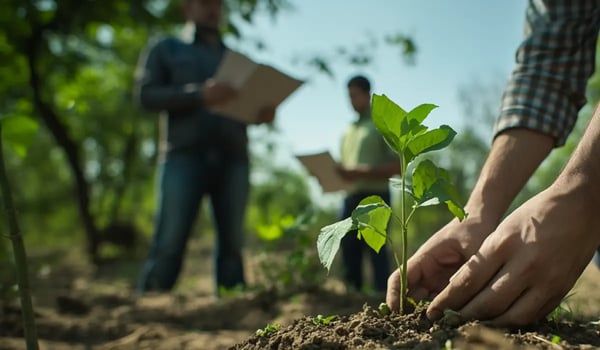Singapore, the UK, and Kenya have come together to launch a global coalition aimed at streamlining...
Former Bank of England governor Mark Carney Calls for G20 to Embrace Voluntary Carbon Markets
Former Bank of England (BoE) governor Mark Carney has called on G20 countries to follow the US’s lead in developing globally integrated voluntary carbon markets (VCMs). Carney, now the UN special envoy for climate action and finance, praised the US government for endorsing high-integrity VCMs in an opinion piece for the Financial Times.
The US Initiative and Carney's Call to Action
Carney emphasized the need for G20 countries to build on the US’s groundbreaking steps towards high-integrity VCMs. He highlighted the recent support from various US government figures, including the treasury, agriculture, and energy secretaries, who have set out a code of principles for companies to follow in these markets.
Carney's message is clear: to achieve the necessary scale, major economies must collaborate to create globally integrated carbon markets. This cooperation is crucial to expanding decarbonization opportunities for emerging and developing economies that currently lack capital.
Upcoming G20 Summit in Rio de Janeiro
The G20 leaders are set to meet on November 18-19 in Rio de Janeiro, Brazil. This summit is part of a series of major diplomatic events hosted by Brazil in 2024 and 2025, including the Clean Energy Ministerial meeting, the BRICS presidency, and UN climate talks (COP30).
The Benefits of High-Integrity VCMs
In his Financial Times article titled "Stop debating carbon markets and start building them," Carney outlined several benefits of high-integrity VCMs:
- Accelerating Emissions Reductions: By improving the economics of new technologies, carbon markets can speed up the reduction of absolute emissions.
- Cross-Border Capital Flows: VCMs can provide hundreds of billions of dollars annually to emerging markets, aiding in a socially just transition.
- Ending High-Emitting Assets: These markets can promote the decommissioning of high-emitting assets and prevent new coal generation in Asia.
- Supporting Net Zero Goals: Companies can commit to more ambitious net zero goals and decarbonize faster through VCMs.
- Financing for Biodiversity and Indigenous Peoples: VCMs can generate significant funding for biodiversity, reforestation, and support for indigenous communities, including the essential reforestation of the Amazon.
Establishing Standards for Integrity
For VCMs to expand effectively, Carney stressed the importance of establishing standards for end-to-end integrity. He referred to initiatives like the Integrity Council for the Voluntary Carbon Market and the Voluntary Carbon Markets Integrity Initiative. These bodies were born out of the Taskforce on Scaling Voluntary Carbon Markets (TSVCM), a UN-backed, private-sector-led initiative headed by Carney himself.
Policymakers must support and build upon these standards, ensuring an assurance ecosystem for transition plans and credit use similar to auditors verifying financial accounts. Carney believes that achieving agreement on standards and implementing them correctly can unlock significant benefits.
Conclusion
Mark Carney’s call to action for the G20 to embrace voluntary carbon markets highlights the potential of these markets to drive global decarbonization efforts. By following the US’s lead and working together, G20 nations can create high-integrity, globally integrated carbon markets that support sustainable development, protect biodiversity, and facilitate a socially just transition to a low-carbon future.






